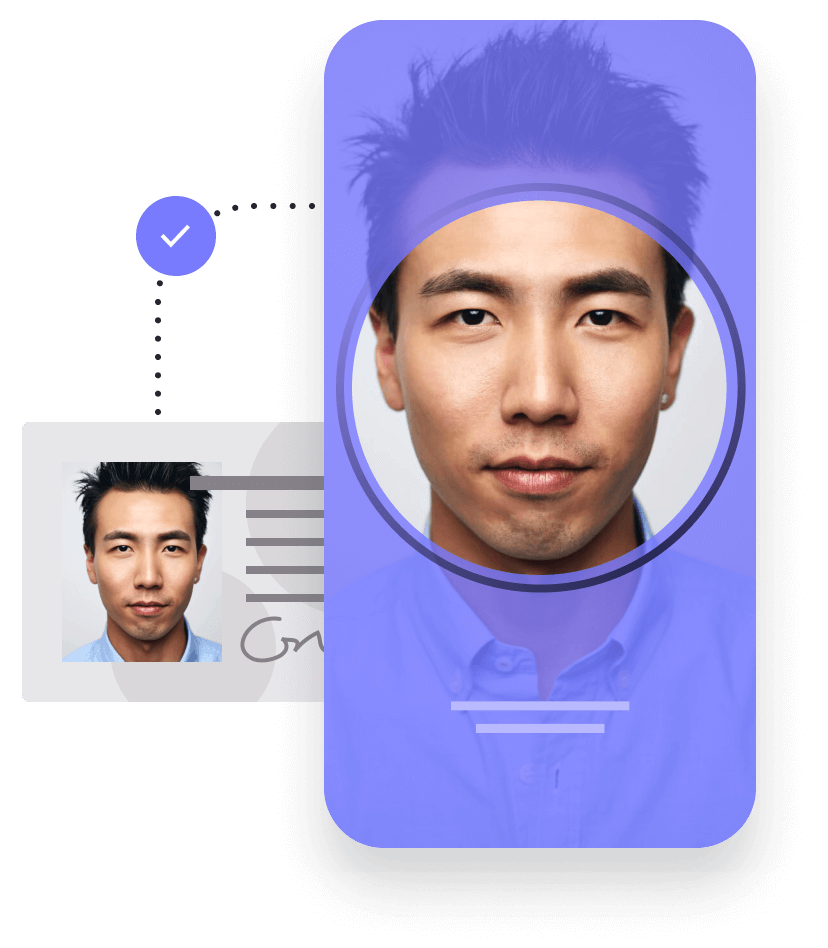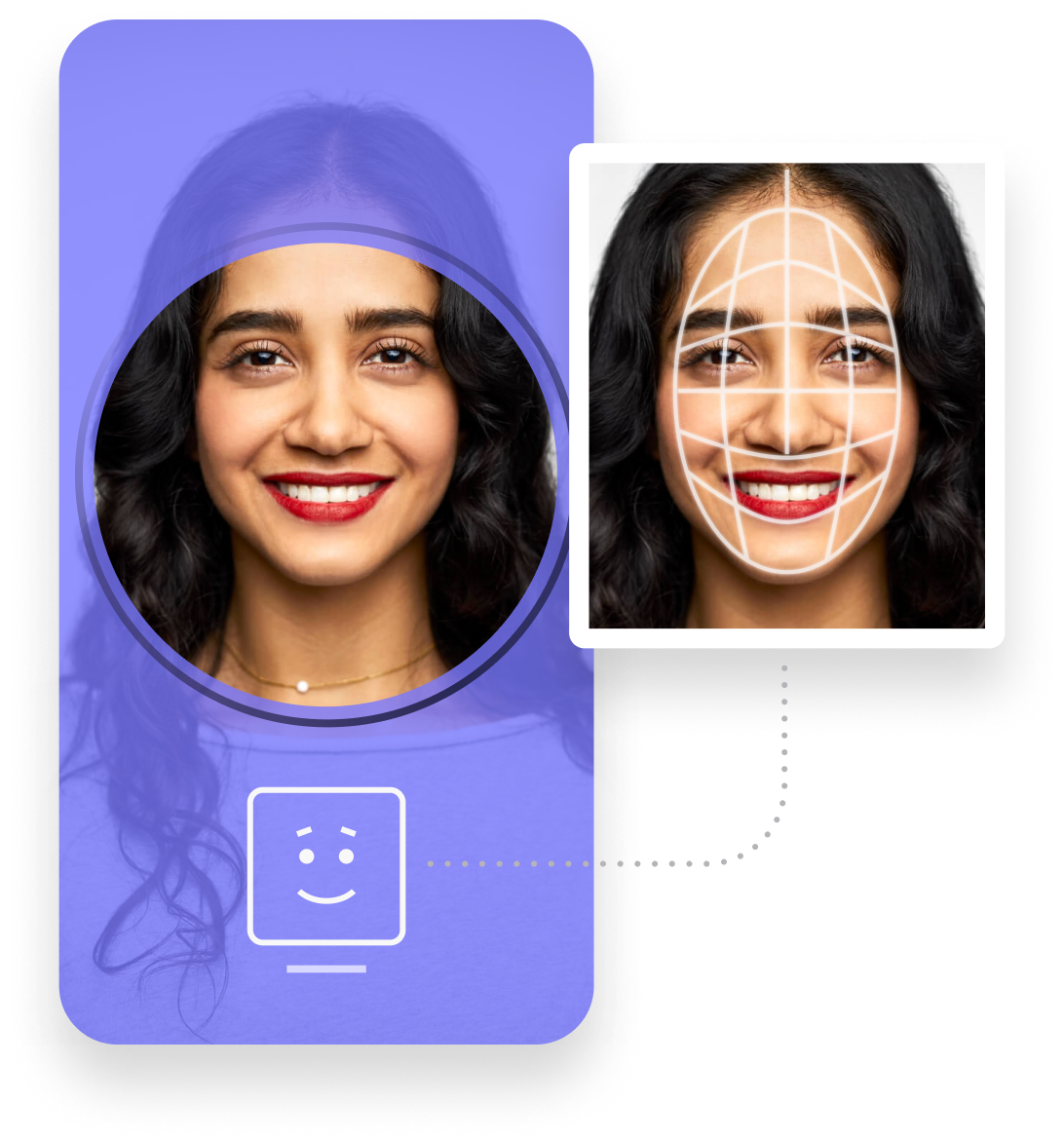Biometric facial recognition
Now recommended by the JMLSG to combat fraud.

The UK Joint Money Laundering Steering Group (JMLSG) published a revision to its guidance, concerning the steps firms should take to manage the risk of impersonation fraud. This guidance now recommends the use of biometric data (including facial recognition and liveness checks where appropriate), as a suggested additional verification method to prevent fraud when onboarding customers remotely. We recommend biometric verification because it's trusted, robust and minimises friction.
What is biometric facial recognition?
Biometric facial recognition is a technology that analyses and identifies individuals based on their unique facial features. By coupling biometric facial recognition with passive liveness or presentation attack detection along with ID document checks, organisations can build a comprehensive defence against fraudsters. In the industry we call this Identity proofing.
Verify the real owner of an ID document
It is no-longer enough just to know a document is real, you must ensure the person presenting it is the true owner. Use our advanced face matching algorithm and passive liveness technology to compare the photo on the document with the face of the customer.
GBG biometric verification
GBG brings together the world's most powerful biometrics verification capabilities that can be accessed through your current GBG IDscan integration.
FaceMatch
FaceMatch offers instant validation of facial recognition features between a printed document (e.g. passport photo) and a live image captured by a device's camera. After taking an identity document photo, users can further authenticate themselves by using the device's forward-facing camera.


Passive Liveness
Our passive liveness technology detects genuine presence against an ID document. It accurately determines liveness in a single frame, streamlining onboarding processes, enhancing customer experience and rapidly detecting impersonation fraud.
Switch on biometric verification today
As an existing customer, you can simply switch on FaceMatch and Passive Liveness verification through IDScan. Speak to a GBG identity verification expert today to ensure you meet new JMLSG guidelines.

